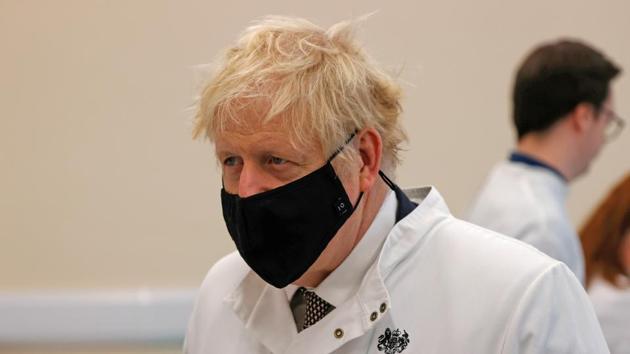NHS England to pilot blood test that may detect 50 cancers, PM Johnson calls it ‘promising breakthrough’
The research has found that the test can identify many types of cancer that are difficult to diagnose at an early stage, including head and neck, ovarian, pancreatic, oesophageal and some blood cancers.
The United Kingdom’s National Health Service (NHS) on Friday announced to pilot an innovative blood test that may spot more than 50 types of cancer, including early-stage ones and said it will be piloted with 165,000 patients in a world-leading programme. Research has found that the Galleri blood test can identify many types of cancer that are difficult to diagnose at an early stage, including head and neck, ovarian, pancreatic, oesophageal and some blood cancers.

If the programme shows that the test also works for people without symptoms, it will be rolled out to become routinely available. Through the pilot programme, NHS plans to increase the proportion of cancers diagnosed at an early stage to help reduce the mortality rate related to the disease. According to the healthcare agency, patients have between five and 10 times the chance of surviving when diagnosed at ‘stage one’ as against ‘stage four’.
NHS chief executive Simon Stevens said in a statement that early detection, particularly for hard-to-treat conditions, has the potential to save many lives. Stevens stressed that the “promising blood test” could turn out to be a game-changer in cancer care. “This trial again confirms that the NHS is at the forefront of cutting-edge treatments and technology,” he added.
Also Read | UK: PM Johnson warns of New Year lockdown as he defends new tier system
The pilot programme is due to start in mid-2021 and will involve 165,000 people, of which 140,000 participants aged 50 to 79, with no symptoms, will have annual blood tests for three years. Another 25,000 people with possible cancer symptoms will be offered the testing to speed up their diagnosis. The results of the programme are expected by 2023.
British Prime Minister Boris Johnson called it a “hugely promising breakthrough” that could transform the way cancers are diagnosed and treated. Johnson took to Twitter to thank the scientists and the NHS for helping to make it happen.






